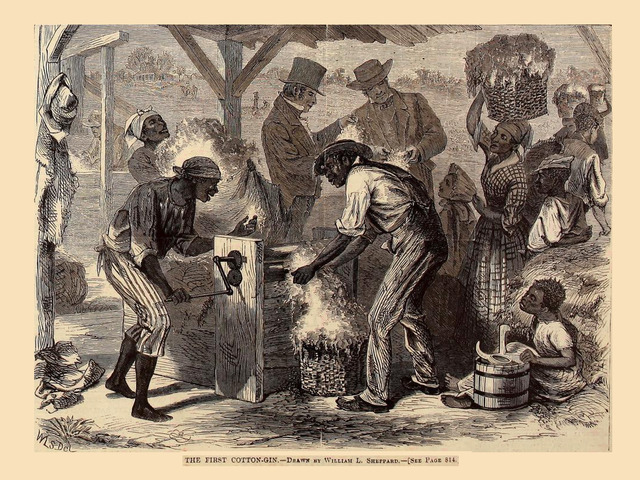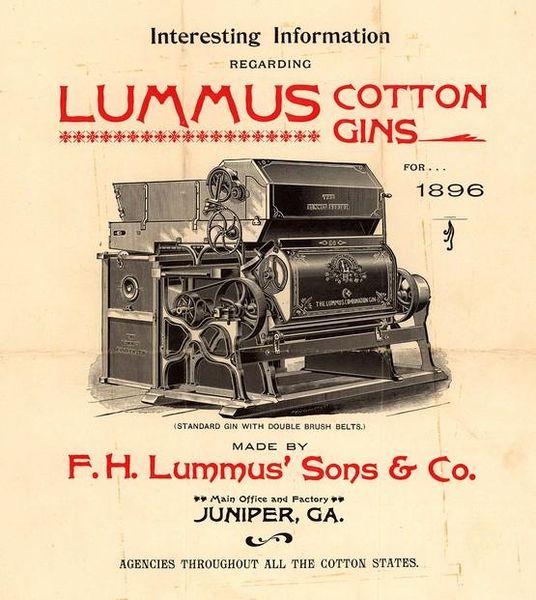Eli Whitney, born on December 8, 1765, in Westborough, Massachusetts, was an American inventor and engineer who made significant contributions to industrial development during the late 18th and early 19th centuries.
He is best known for his invention of the cotton gin, a machine that revolutionized the cotton industry and had a profound impact on the economy of the southern United States. However, Whitney’s innovative ideas extended beyond the cotton gin.
He also pioneered the concept of interchangeable parts and implemented manufacturing systems that transformed production methods. His inventions and manufacturing techniques played a crucial role in the rise of mass production and the advancement of American industry.
Despite facing legal challenges and financial difficulties, Eli Whitney’s inventions and ideas had a lasting impact, shaping the course of industrial progress and manufacturing practices.
Eli Whitney Facts
1. Eli Whitney was born on December 8, 1765, in Westborough, Massachusetts.
Eli Whitney was born on December 8, 1765, in Westborough, Massachusetts. He was the eldest child of Eli Whitney Sr. and Elizabeth Fay. From a young age, Whitney displayed a keen interest in mechanical devices and inventing, which would shape his future endeavors.
2. Whitney is best known for his invention of the cotton gin
Whitney’s most renowned invention, the cotton gin, revolutionized the cotton industry. In 1793, while staying on the plantation of Catherine Greene in Georgia, Whitney observed the laborious process of separating cotton fibers from the seeds by hand. Motivated to find a solution, he designed and built the cotton gin, short for “cotton engine.”

3. The machine could quickly and efficiently separate cotton fibers from the seeds.
The cotton gin consisted of a series of wire teeth that pulled the cotton fibers through small slots, separating them from the seeds. This invention dramatically increased the efficiency and speed of cotton processing, making it more economically viable.
4. Whitney’s cotton gin significantly increased the profitability of cotton production
The impact of Whitney’s cotton gin was immense. Prior to its invention, cotton production was a labor-intensive and time-consuming process. With the cotton gin, one person could process much larger quantities of cotton in a shorter period, leading to a surge in cotton production.
This increased demand for cotton resulted in a significant expansion of cotton plantations and slavery in the southern United States.
5. Whitney faced numerous legal challenges to protect his patent rights
Despite the success of the cotton gin, Whitney faced numerous challenges to protect his patent rights. Many individuals, both in the United States and abroad, tried to copy or modify his invention without his permission.

Whitney spent several years engaged in legal battles to defend his patent, eventually winning in 1807. However, enforcing his patent proved difficult, and widespread infringement continued.
The legal battles and difficulties Whitney encountered in protecting his patent took a toll on his financial situation. He struggled to profit from his invention as patent infringement undermined his ability to secure royalties and license fees.
Whitney’s cotton gin brought immense wealth to others, such as plantation owners and manufacturers, but he himself did not amass significant personal wealth from it.
Despite this, Whitney’s invention had a profound impact on the American economy, particularly in the southern states where cotton became a dominant industry.
6. Whitney also invented other significant machines
In addition to the cotton gin, Eli Whitney invented other significant machines and manufacturing systems. One notable invention was the milling machine for interchangeable parts. Whitney developed this machine in the early 19th century, which allowed for the precise shaping and cutting of metal parts.
This innovation was crucial in the creation of standardized and interchangeable components, enabling the mass production of goods and facilitating repairs and replacements.
7. His concept of interchangeable parts revolutionized manufacturing and led to the development of mass production methods
Whitney’s concept of interchangeable parts revolutionized manufacturing practices. Before his time, items were typically handcrafted, and each piece had to be custom-made for a particular product.
With the introduction of interchangeable parts, manufacturers could produce components that were identical in size and shape, enabling efficient assembly and repair. This concept greatly increased production efficiency, reduced costs, and simplified maintenance.
8. Whitney’s ideas on interchangeable parts became the foundation for modern industrial production
Whitney’s ideas on interchangeable parts and standardized manufacturing became the foundation for mass production.
The concept of interchangeable parts revolutionized manufacturing industries across various sectors, including firearms, machinery, and consumer goods.
Whitney’s methods paved the way for increased efficiency, reduced costs, and improved productivity, ultimately driving the growth of the American manufacturing industry.
9. He established a firearms factory in New Haven, Connecticut, where he implemented his manufacturing system for muskets
Whitney established a firearms factory in New Haven, Connecticut, in 1798. It was here that he implemented his manufacturing system for muskets, which was based on the principles of interchangeable parts.
This system allowed for the efficient production of standardized muskets, with each part being interchangeable among various rifles. By using machine tools, gauges, and precise measurements, Whitney’s system improved the quality and reliability of firearms.
10. Whitney’s musket manufacturing system played a crucial role in supplying the United States with firearms during the War of 1812.
During the War of 1812, Whitney’s musket manufacturing system played a vital role in supplying the United States with firearms.
The standardized and interchangeable musket parts produced in his factory allowed for faster production, repairs, and maintenance of weapons. This contributed to the military readiness and effectiveness of the American forces during the war.
11. He was one of the early proponents of using machine tools and gauges for precision manufacturing
Eli Whitney was an early advocate for the use of machine tools and gauges in precision manufacturing. He emphasized the importance of uniformity and precision in the production process.
By employing precise measurements and standardized tools, Whitney aimed to achieve consistency in the manufacture of interchangeable parts. His focus on precision and quality laid the groundwork for modern manufacturing practices that prioritize accuracy and repeatability.
12. Despite his significant contributions to American industry, Whitney struggled financially throughout his life
Despite his significant contributions to manufacturing and industry, Eli Whitney faced financial challenges throughout his life. He struggled to generate substantial profits from his inventions due to patent infringement and difficulties in enforcing his patent rights.
Additionally, the costs associated with running his firearms factory, combined with economic downturns and competition, often left him in a precarious financial position.
Nevertheless, Whitney’s ideas and innovations laid the foundation for modern manufacturing methods and had a lasting impact on industrial development.
13. Whitney was involved in several business ventures throughout his career
Throughout his career, Whitney was involved in various business ventures beyond his inventions. He sought to apply his engineering and entrepreneurial skills to diverse areas.
For instance, he developed a machine for making nails and attempted to establish a nail factory. He also explored agricultural innovations, including the invention of a mechanical cotton picker and experiments with new farming techniques.
Additionally, he was involved in plans to develop a canal system to improve transportation.
14. He was an advocate for the use of technology and machinery to improve efficiency and productivity
Whitney’s advocacy for technology and machinery to enhance productivity reflected his belief that industrial progress would lead to economic growth and national prosperity.
He envisioned a future where machines would augment human labor, making production more efficient and increasing the availability of goods.
His inventions and ideas aligned with the broader spirit of the Industrial Revolution, contributing to the advancement of technology and the transformation of American industry.
15. Eli Whitney died on January 8, 1825, in New Haven, Connecticut, at the age of 59
Eli Whitney passed away on January 8, 1825, in New Haven, Connecticut, at the age of 59. Despite facing financial challenges and struggles to protect his patent rights, his inventions had a profound and enduring impact on American industry.
The cotton gin revolutionized cotton production and played a significant role in the expansion of the cotton industry in the southern United States. His development of interchangeable parts and manufacturing systems transformed production methods, leading to the rise of mass production and the standardization of goods.
Whitney’s legacy as an inventor, innovator, and proponent of industrial progress remains significant in the history of American technology and manufacturing.
